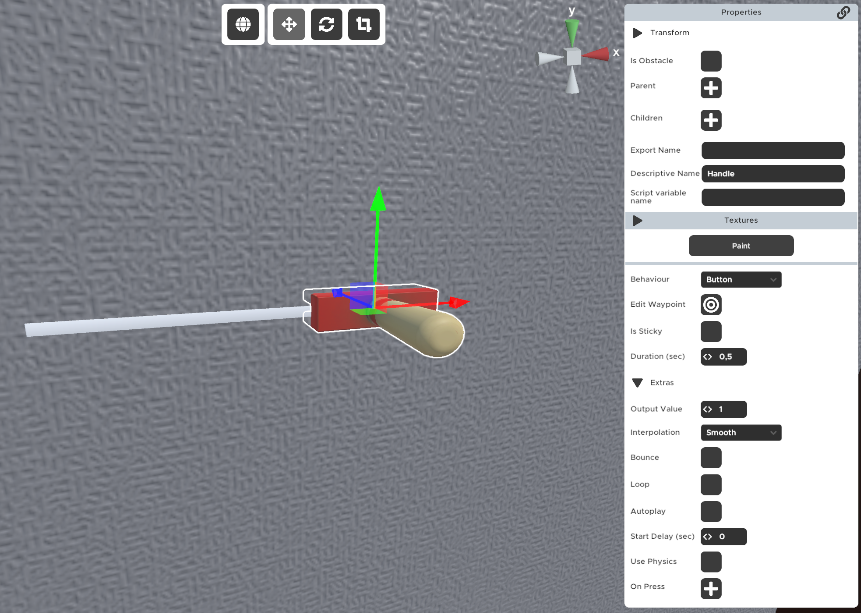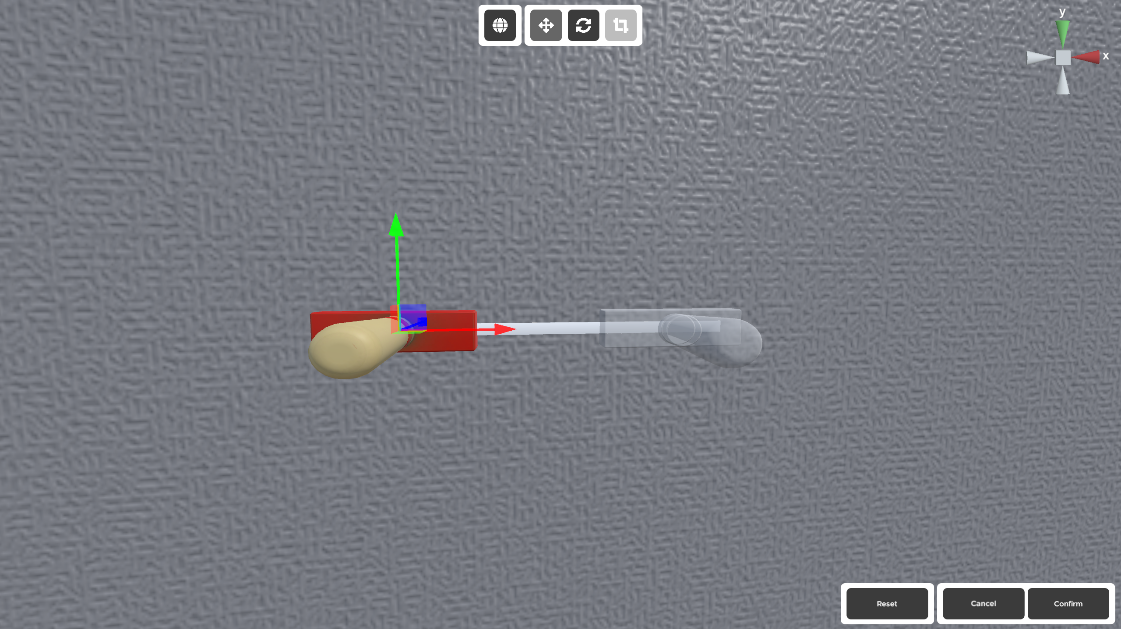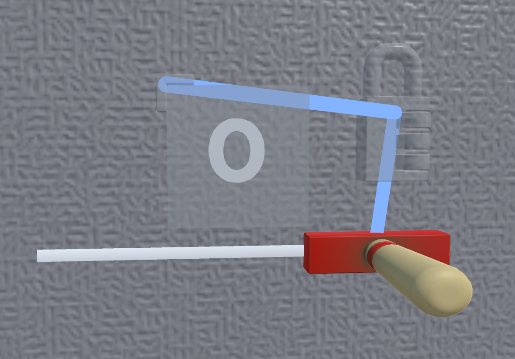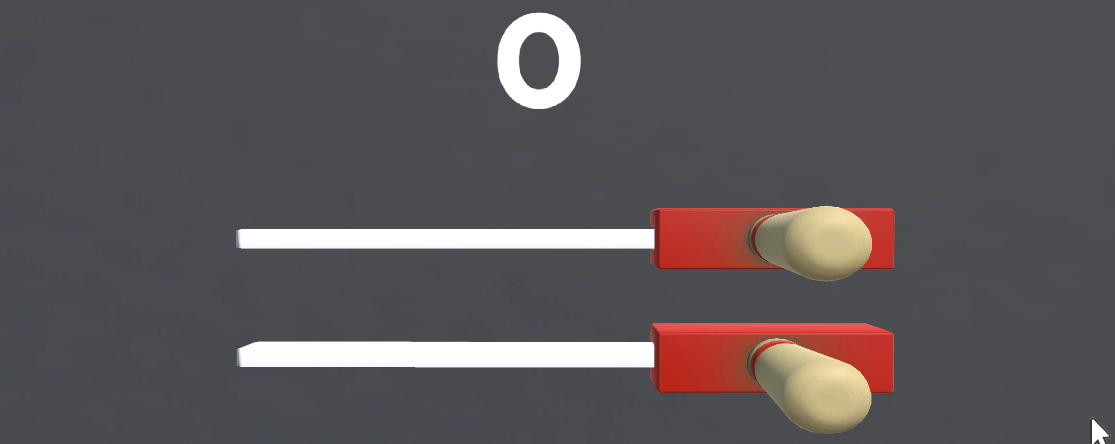Button
The button property is used to make an object into a clickable button. In game the cursor turns into a cogwheel when hovering over it, indicating that it is interactable.

Buttons can not be activated by Animations, other Buttons or any other logical object, only by Autoplay or players.
You can make your "clutter" objects be buttons instead of pickups or draggable. That way your room still offers interaction with items without cluttering the player inventory or messing with your decoration. E.g. a button book can easily be lifted with a click to look under it. Another click puts it back down.
Properties
🔸Edit Waypoint
Clicking the button will open the special Button settings screen where you can set the final position of the Button. This determines the endpoint of the movement of the button when it gets pressed. It can flip like a switch, or be pushed down, or spin, or be pulled out.

Here you can move the camera as you move it in the Room Editor (holding right click and using the WASDQE keys for movement) and move the position of the Button prop. Scale changes are ignored for the Button.
Only the props that are set as children to the prop with the Button behaviour will be animated.
🔸Is Sticky
The button can only be pressed once, then is deactivated and no longer pressable.
🔸Duration
This determines how fast the button animation will happen. The button activation signal will be sent at the END of the animation!
"0 seconds" means the position change will happen instantly.
🔸Output Value
Numerical value that gets send to a lock when the button is activated. Deactivating it will send a 0. When it is set to Bounce it will only send the set value on press and not the 0.
This can be used to create password keypads that require buttons to be pressed in order. Use "continous" locks for that purpose. You can check out the already assembled Keypad prop which takes the output of each numbered Button and sends it to a Lock prop.
🔸Interpolation
Let's you choose between Smooth and Linear. This effects the way the press animation is handled.
Smooth gives an animation a more natural look, by changing speed at the beginning and end of the animation. Starts slow but speeds up, when it get's near the end it slows down before reaching a full stop.

Linear will make the animation move at a constant speed.

🔸Bounce
This will have the animation "bounce" back to its starting position.

The image above shows the setup that is used to show when and how the Button sends the Output Value or a 0. The Button has the Lock as an On Complete target, and the Display targets the Lock.
If this is unchecked, the button will stay in the same location it was at the end of the animation. If bounce is not activated, a button has an on/off position and output.

Bounce leads to the button sending an activation signal every time it is pressed. Here in the example there are two bounced buttons. The top one has 1 as the Output Value, while the bottom one has 2.

The most common issue with button and lock logics is forgetting to add the Bounce checkmark!
🔸Pause (sec)
When the button prop reaches the Waypoint the prop will stay there for Pause seconds and then return.
This property is only active if the Bounce property is active
🔸Loop
If checked, the animation AND the activation signal it sends out at the end will be looped forever. The button keeps pushing itself.
🔸Autoplay
Will active the button on its own once when the game starts.
🔸Start Delay (sec)
The delay determines how long it takes for the animation to happen at first. The delay does NOT apply if a player presses the button! It only applies for the Auto-play. It also does not apply to loops, just to the first instance the button is automatically pressed.
🔸Use Physics
Activates the physics interaction, meaning it will push other props that also have physics interactions, like pickable or draggable props.
🔸On Press
Determines which items get the activation signal and the Output Value when the button is pressed and the press animation ended.